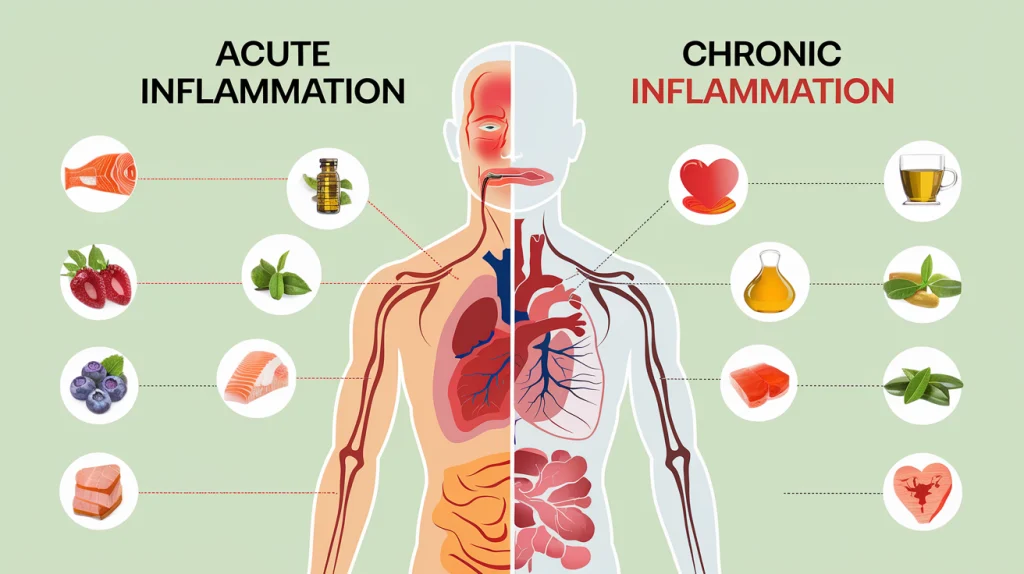
Inflammation plays a critical role in your body’s immune response, acting as the first line of defense against injury and infection. The classic signs of inflammation—redness, swelling, heat, and pain—are clear indicators that your body is actively working to heal itself. But did you know that not all forms of inflammation are this obvious?
The Different Types of Inflammation
Inflammation isn’t just about visible symptoms like the swelling from a mosquito bite or the soreness after an intense workout. It can take many forms, including those that are less noticeable but equally important.
Acute Inflammation
Common causes of acute inflammation include:
- Muscle soreness after exercise.
- A sore throat during a cold.
- Swelling from a sprain or bruise.
These short-term reactions are your body’s way of repairing itself. For example, muscle soreness, once believed to be caused by lactic acid buildup, is now understood to result from microtrauma in the muscle fibers. This leads to delayed-onset muscle soreness (DOMS), peaking 1-2 days after strenuous activity.
Chronic Inflammation: The Silent Threat
While acute inflammation is visible and temporary, chronic inflammation is a silent condition that can persist without obvious symptoms. Over time, it can contribute to serious health issues such as:
- Heart disease
- Diabetes
- Arthritis
- Certain cancers
Chronic inflammation may not show the redness or swelling associated with its acute counterpart, but it’s a persistent state of inflammation that can have long-term consequences on your overall health.
Inflammation: Friend or Foe?
It’s essential to understand that inflammation isn’t always harmful. In fact, it’s a beneficial and necessary part of your body’s defense mechanisms. The key is learning how to manage and identify chronic inflammation before it leads to more significant health problems.
How to Manage and Prevent Chronic Inflammation
Here are some steps you can take to support your body’s natural healing processes and reduce chronic inflammation:
- Adopt an anti-inflammatory diet rich in Omega-3s, antioxidants, and fiber.
- Stay active with regular exercise.
- Manage stress through mindfulness or relaxation techniques.
Understanding the different forms of inflammation and their effects on your body is crucial for maintaining a balanced immune response and preventing chronic conditions. By staying aware of both the visible and hidden signs of inflammation, you can take proactive steps toward better health.
